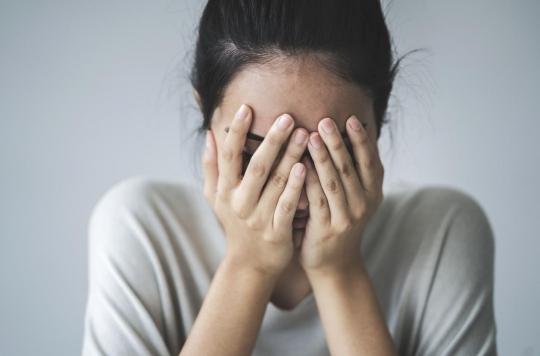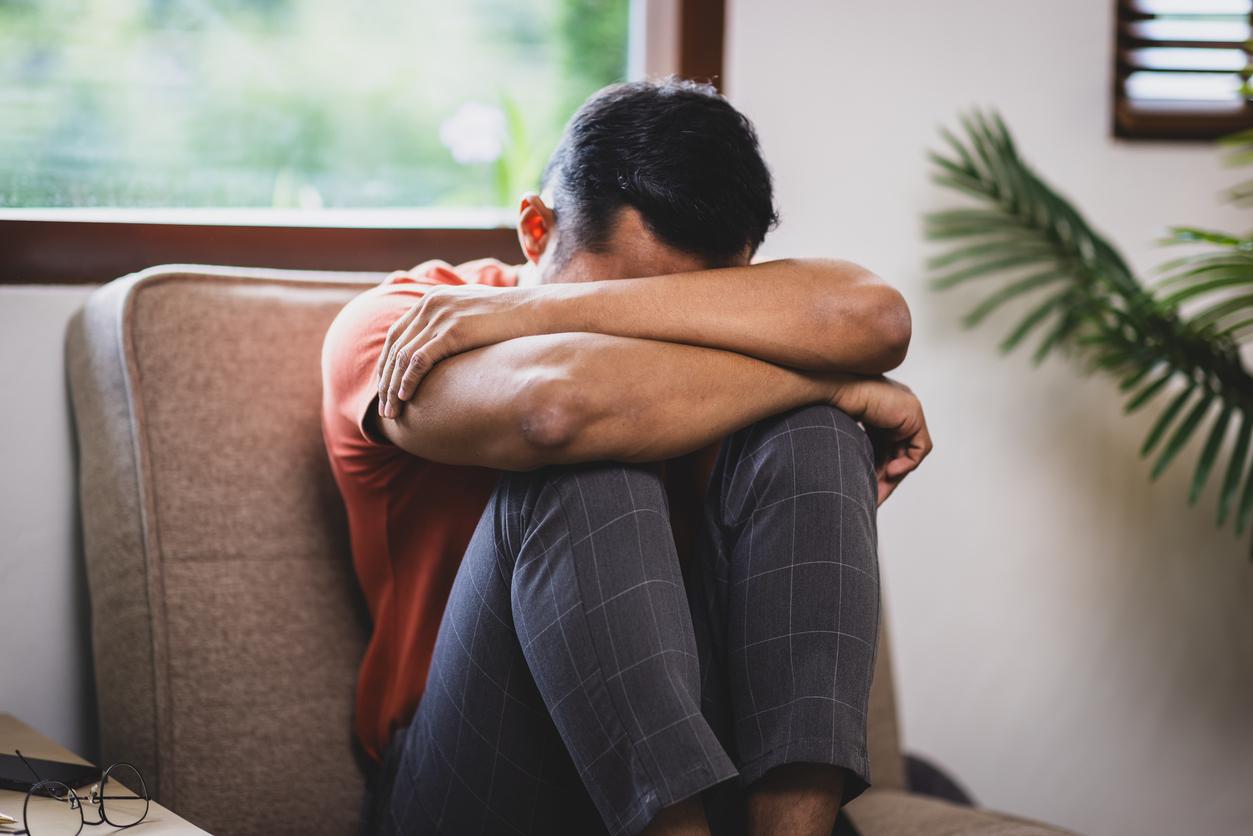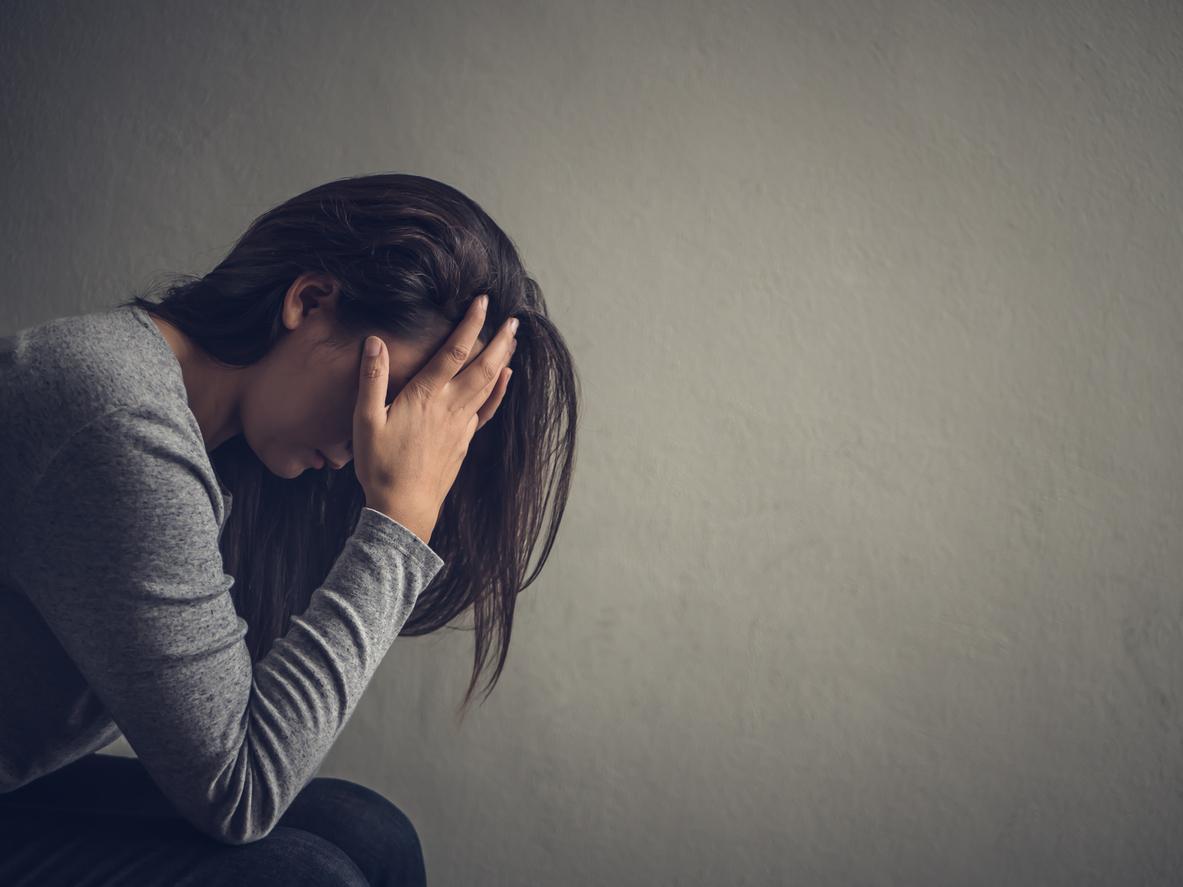Extreme fatigue, dark thoughts, persistent feeling of ill-being… How to spot depression and distinguish it from a simple blues? On this World Mental Health Day, focus on the 9 signs not to be overlooked.

Mental illness affecting all age groups, from childhood until very late in life, depression is characterized by the appearance of symptoms which, although eloquent, are sometimes minimized or difficult to apprehend. Indeed, how to differentiate with certainty a temporary depression from a real depressive episode?
For this, there are nine clinical symptoms to refer to, established in particular by Inserm to better manage and treat depression.
1. A continuous feeling of sadness
If you have been overwhelmed for some time by an immense feeling of sadness whose origin you cannot perceive, and/or that you have the feeling that things will never be able to improve, this should put you on the track . “Everyone knows what it is to be sad. But in the depressed person, it is impossible to modulate this emotion”, explains to franceinfo Dr Pierre-Michel Llorca, psychiatrist at Clermont-Ferrand University Hospital.
Result: a depressed person sometimes comes up against the incomprehension of those around him, who cannot understand the reasons for his permanent malaise.
2. A loss of interest and pleasure
You who loved so much to indulge in certain social, creative, sporting or intellectual activities, are now struggling to find any interest in them. None of your daily activities give you more pleasure, even the ones you’d rather indulge in.
3. Immense fatigue
Even though you go to bed early in the morning, you struggle to find the energy to leave your bed. You would prefer to stay there again rather than having to face another day there. You may also have trouble sleeping. “Most often, sleep disturbances affect the second half of the night in depressed people. They therefore wake up very early, around 4 or 5 in the morning and this awakening is accompanied by sad thoughts and anxiety” , explains Dr. Llorca.
4. Dark or suicidal thoughts
You often wonder if your life is worth continuing. You often think about death, even suicide. In fact, however, only 5 to 20% of depressed people kill themselves. “These ideas are more frequent in depressed subjects than in the general population, but many depressed subjects do not have suicidal thoughts”, specifies Dr. Llorca.
5. Weight variation
You can no longer find pleasure in eating and are never hungry again. Or, on the contrary, you eat too much and too much to fill the void you feel. “In 70% of cases, the weight change linked to depression is weight loss explained by a loss of appetite. The remaining 30% correspond to hyperphagia and therefore to weight gain” adds Dr. Llorca.
6. Difficulty concentrating and remembering
You regularly find it difficult to focus your attention on a subject, a discussion, an activity, even a pleasant one. You often have memory loss, forget important information.
7. Excessive or inappropriate feelings of worthlessness and guilt
Whatever you do, you feel like you’re bad or useless. The result: you never feel like you belong. You are also often overwhelmed by feelings of guilt.
8. Physical Disorders
You often have stomach aches and have noticed a loss of sexual desire. It may happen that certain antidepressants prescribed for depression are the cause of these physical disorders. Ask your doctor about the possible side effects of these medications.
9. Psychomotor slowing
You feel like your brain is idling, have trouble expressing your thoughts, have language difficulties. This psychic and intellectual slowing down is also sometimes accompanied by physical symptoms: your body no longer seems to fully respond to your thoughts, which aggravates your feeling of insufficiency and incapacity.
For patients with five to seven of these symptoms, the depression is considered mild to moderate. Beyond eight, it is said to be severe. In any case, if you notice at least two of these signs, do not wait to consult a doctor: the latter will be able to diagnose and evaluate your depressive disorder and provide the appropriate treatment.

.

















